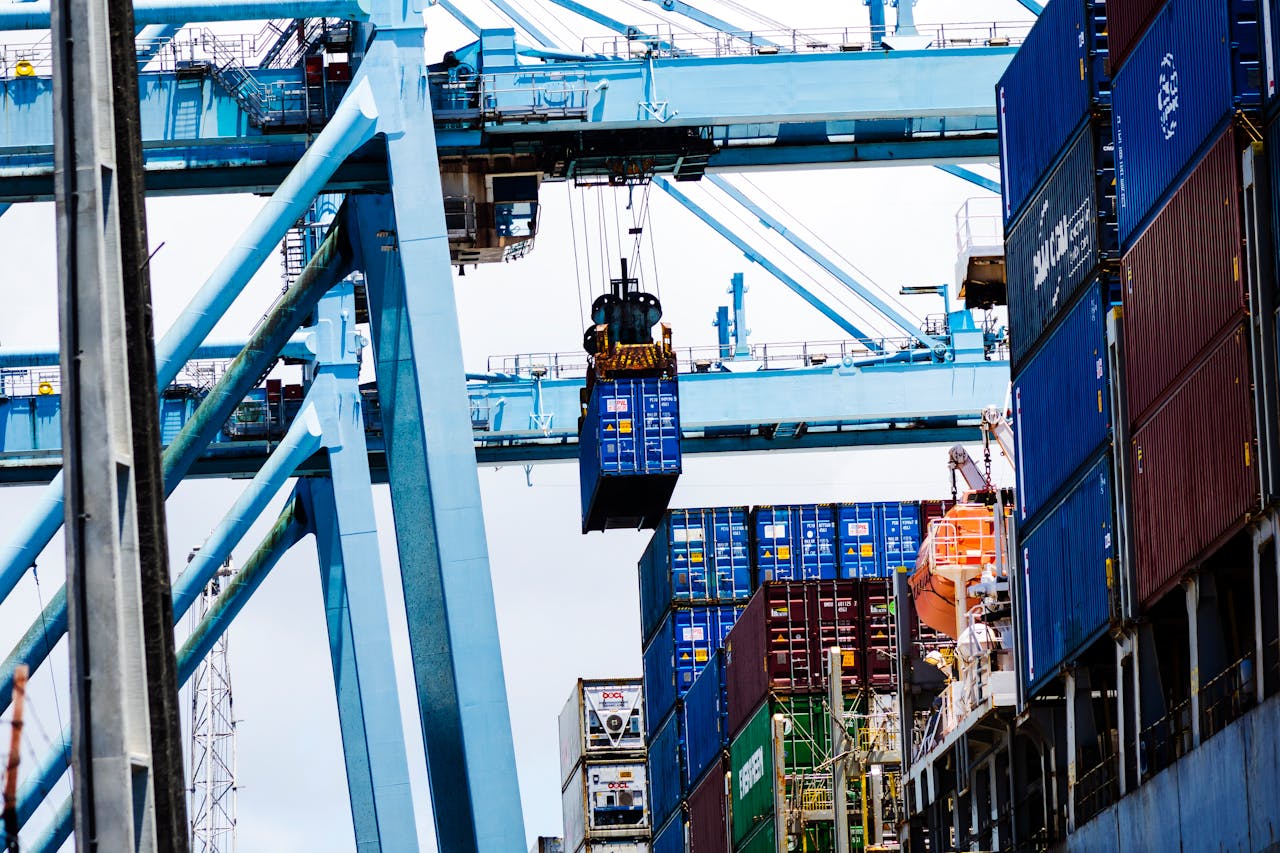There’s no denying that the logistics industry has a significant environmental impact – that’s why, for many years, we have also been at the heart of eco-friendly considerations. The challenges of green shipping are significant, with a growing demand for international freight and increasing regulation needing to be balanced with environmental responsibility.
Modern green shipping initiatives and sustainable shipping have their advantages and disadvantages for you as a business. At Millennium Cargo, we’re committed to our ongoing ecologically sound processes, but how do they affect you? To help our customers understand, we look at the pros and cons of green shipping initiatives.
PRO: Reduced Carbon Footprint
Transport is a major factor in CO₂ emissions, with traditional fossil fuels a significant contributor. Green shipping initiatives include a range of processes designed to lower these emissions and improve the industry’s carbon footprint, including:
- Alternative fuels such as electric and hydrogen are designed to replace fossil fuels without sacrificing efficiency.
- Development of new energy-efficient vessels to limit fuel use in transit.
- Slow steaming, or the simple process of lowering shipping speeds to use fuel efficiently, is a cost-effective way of reducing emissions. While slow steaming does increase transport times, it can significantly lower costs while maintaining environmental responsibility.

PRO: Regulatory Compliance
Businesses that play a proactive role in green shipping are those that will benefit from efficient systems that meet environmental laws both now and in the future. Regulations that include the EU Emissions Trading System (ETS) and the IMO decarbonisation target could potentially present penalties and difficulties for companies that do not move to embrace green shipping initiatives.
Future-proofing is an essential component of any business working on a global scale. Taking control today by embracing green shipping will save considerably in the long run.
PRO: Improved Brand Reputation
The public attitude towards eco-conscious businesses is increasingly positive. This extends both to direct customers but also in terms of meeting shareholder expectations and making better long-term business partnerships. An ecologically responsible business that upholds its global obligations for environmental support will be perceived positively around the globe.
This leads to continued support on an international stage, improved B2B relationships and growth on a direct customer level.
PRO: Long-Term Cost Savings
There is no doubt that as technology improves, the investment in ecologically sound shipping methods is returned, often many times over.
Companies that adopt sustainable shipping and understand the benefits of green logistics can reasonably expect their costs to be mitigated as new initiatives and existing programs, such as carbon credits, provide further financial support.
CON: Initial Costs
There’s no getting around the fact that investing in green shipping solutions and eco-friendly freight can come with a sizeable upfront cost. Moving from existing infrastructure, vehicles, and machinery to embrace biofuels, LNG-powered ships, or electric cargo vehicles does require significant investment.
Similarly, putting the administrative infrastructure and processes in place to meet the needs of sustainability regulations can also increase costs in the short term.
CON: Slower Shipping
One of the main methods to lower carbon emissions involves slow steaming, as discussed earlier. This, along with other fuel-efficient processes, means that certain routes and transport options take longer for your shipping than when the demands of eco-friendly shipping are ignored.
For businesses with time-sensitive shipments, moving to slower transportation may increase costs or even make some destinations no longer viable. Here, considerations must be made to balance realistic needs with environmental responsibility.
Limited Infrastructure
In some regions, the infrastructure is not yet at a standard where the eco-friendly freight options are viable. This can be especially true when considering shipments to developing markets. Logistics partners may simply be unable to meet the needs of sustainability-centric clients on certain routes.
Over time, however, as green shipping initiatives become more widespread and better developed, this infrastructure disadvantage will be mitigated.
Adjustments to Operational Procedures
Moving to a sustainable model requires adapting internal processes to meet new regulations and systems. Companies will need to adjust their supply chain strategies, considering potentially longer shipping times, increased regulatory compliance and (at least in the short term) higher costs.
Compliance with regulations also means new reporting methods, upgrades to software and administrative equipment and significant training programs.
Finding the Right Balance
As with any changes to business processes, it is essential to balance the disadvantages of green shipping initiatives against the benefits. Comprehensive strategic planning must be undertaken to consider such concepts as:
- Hybrid approaches to optimise involvement, for example, combining slow steaming sustainable sea freight with carbon offset programmes.
- Supply chain planning to mitigate longer transit times with more efficient inventory management.
- Development of new standard operating procedures (SOPs) to integrate new software solutions and infrastructure to current processes.
- Full-scale partnership with experienced eco-conscious freight forwarding companies to make the most of a developed network of sustainable shipping partners.

How Millennium Cargo Supports Green Shipping
For years, Millennium Cargo has prioritised green shipping and environmental responsibility. We have the experience and dedication to help your business confidently move forward with key green shipping initiatives.
Millennium Cargo has a strong global network of sustainable carriers and eco-friendly shipping solutions. We provide your business with the cost-effective green logistics you need to stay compliant and future-proof with the evolving sustainability regulations.
To learn more and to place yourself firmly on the tracks of responsible shipping, speak to an advisor at Millennium today.

